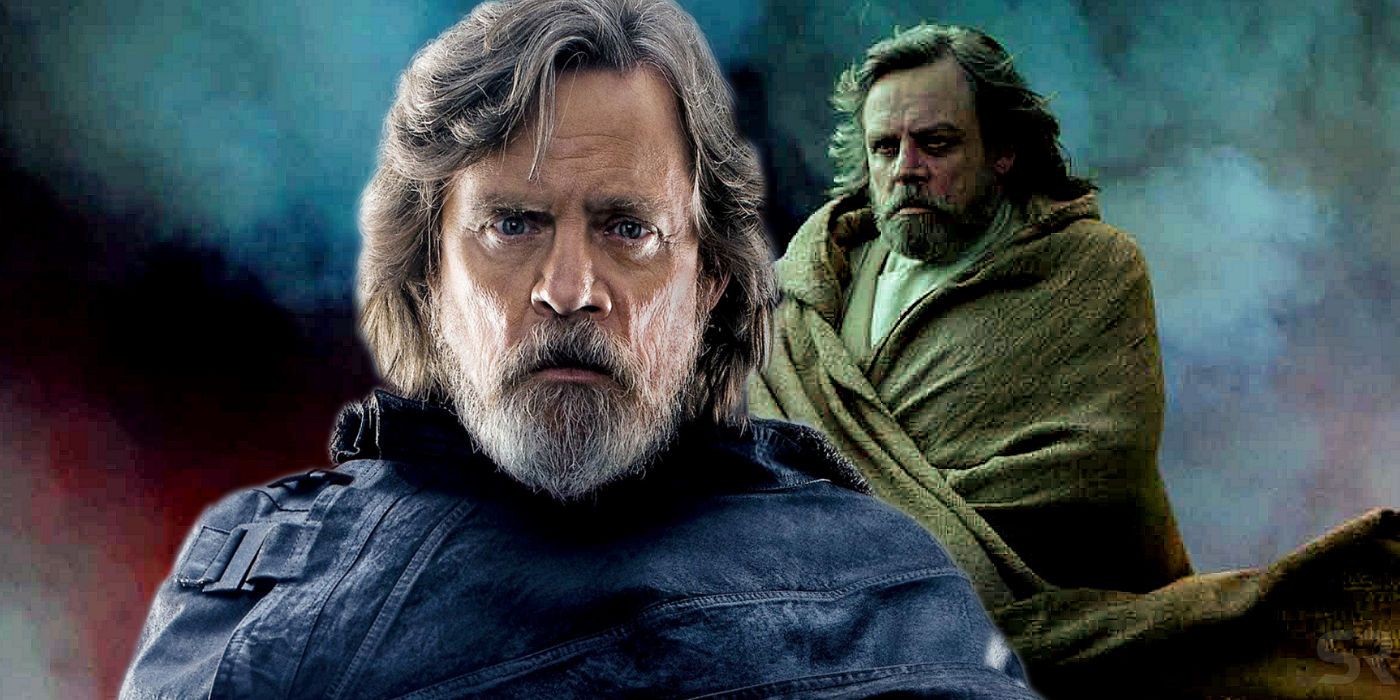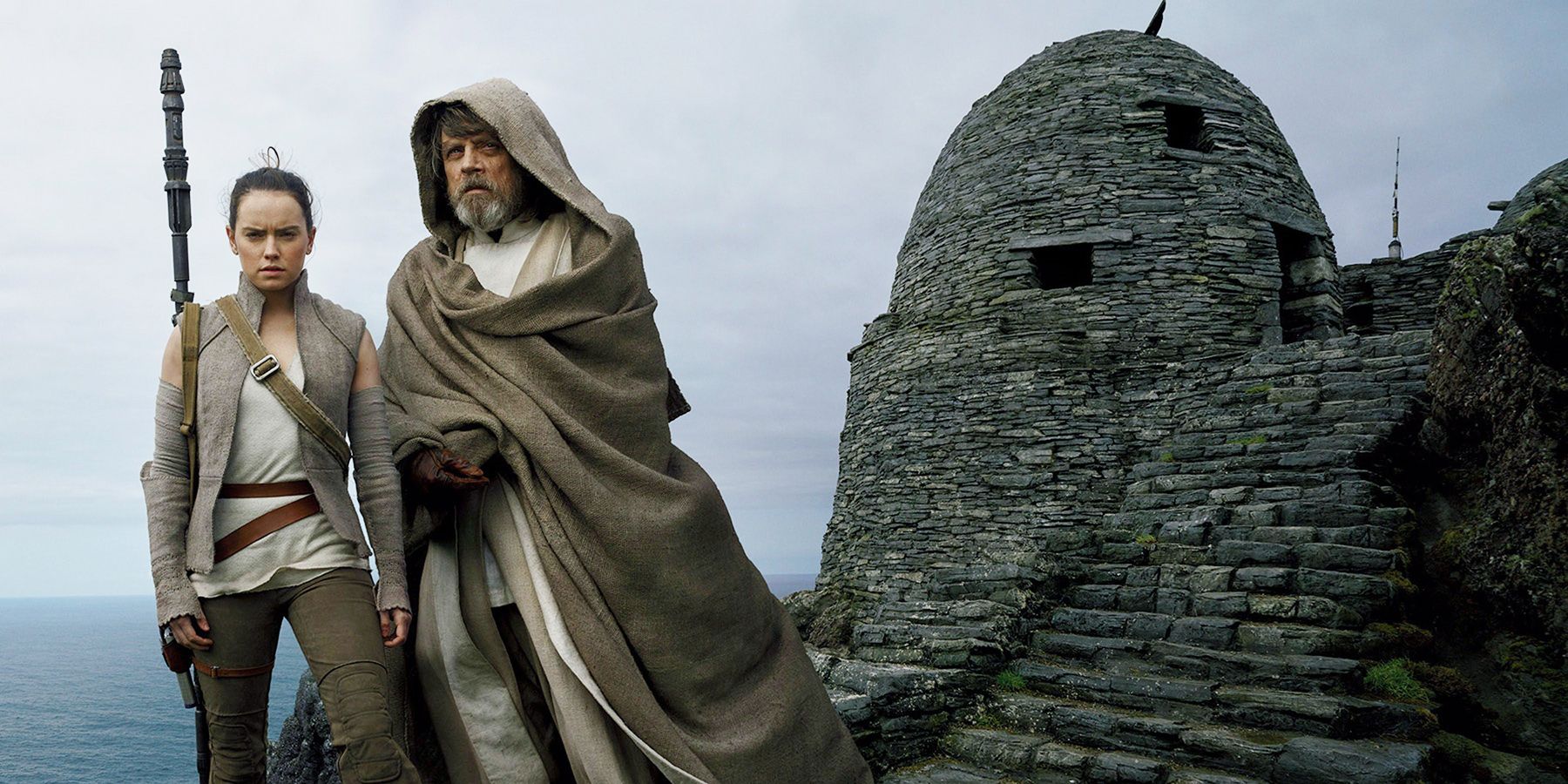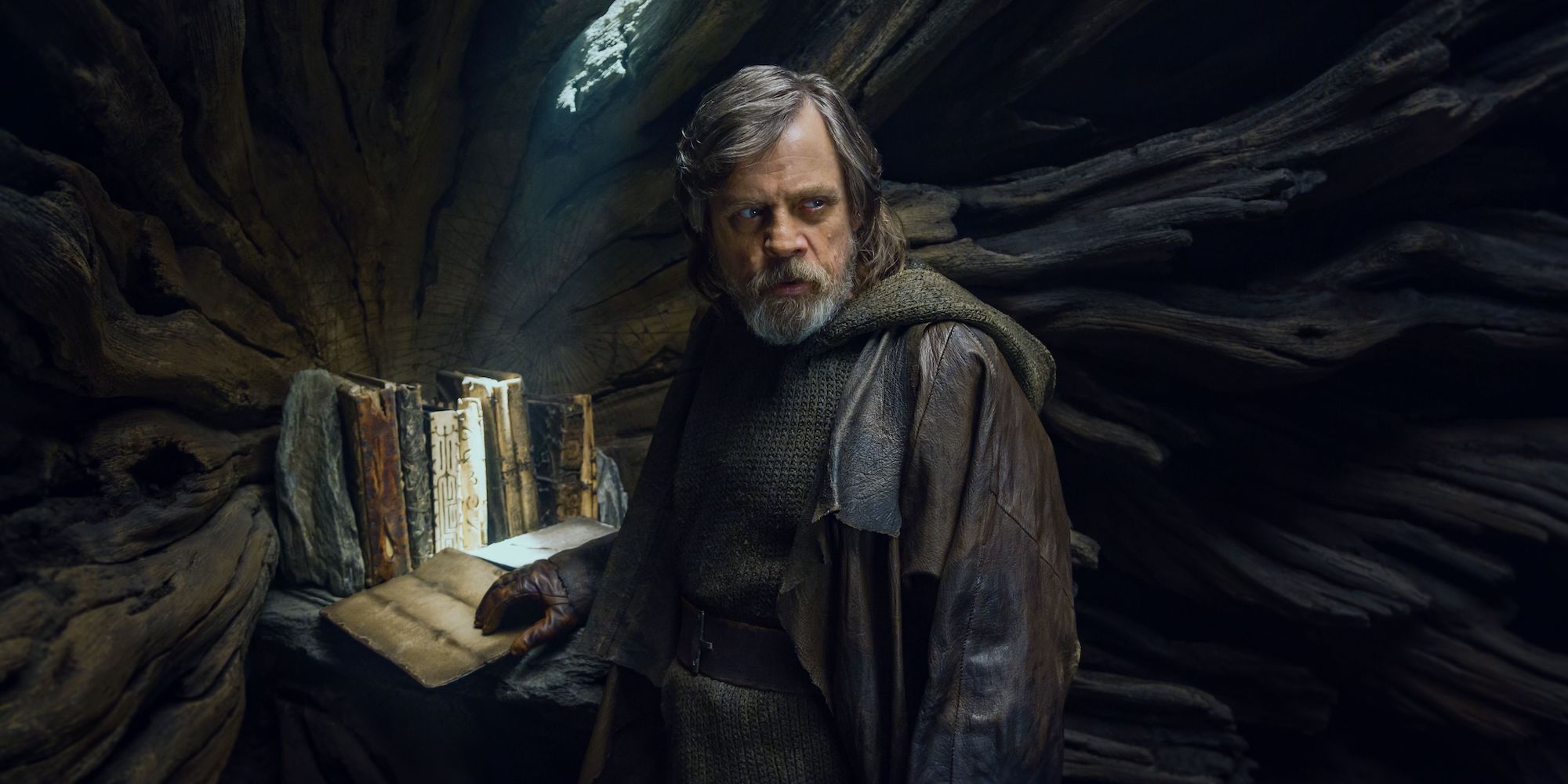
This post contains MAJOR SPOILERS for Star Wars: The Rise of Skywalker
The Luke Skywalker Rey interacts with in Star Wars: The Rise of Skywalker is very different than The Last Jedi. Smartly, Lucasfilm wasted no time in confirming Mark Hamill would return one last time in his iconic role for the sequel trilogy finale, announcing his involvement shortly before production started. Given the events of The Last Jedi, just about everyone expected Luke would appear as a Force ghost to share some wisdom with Rey, just like the spirits of Obi-Wan Kenobi and Yoda came to his aid during times of need. There were other ways Luke could have been incorporated into the story (flashbacks, etc.), but Force ghost was the most likely option.
And indeed, Luke's Force ghost came to Rey when she was at her lowest point. Following her lightsaber duel with Kylo Ren on Kef Bir, Rey fled to Ahch-To and planned to spend the rest of her life in exile. But a little pep talk from her old master encouraged Rey to confront Palpatine and ultimately destroy the Sith (seemingly) once and for all. This had the potential to be one of the more emotionally powerful sequences in the entire film, finally delivering on the third lesson Rey never received in The Last Jedi. And while there certainly are positive aspects to Hamill's glorified cameo, The Rise of Skywalker changes key elements of Last Jedi's Luke - arguably for the worse.

When Rey found Luke on Ahch-To at the end of The Force Awakens, she expected to meet a galactic legend who would answer Leia's call to help lead the Resistance against the First Order. Instead, the Luke Rey discovered was a far cry from the noble, optimistic hero. Due to his failing of Ben Solo, Skywalker had become disillusioned and pessimistic, a broken man who felt the galaxy would be a better place without him (or the Jedi Order) around. He initially tossed his old lightsaber off a cliff and refused to train Rey, despite desperate pleas from the scavenger and even Chewbacca. Luke had come to Ahch-To to die and nothing could change his mind.
Of course, Luke had a change-of-heart during The Last Jedi, sparked by a valuable lesson from his mentor Yoda. In his last conversation with his old master, Skywalker learns that failure (a running theme in The Last Jedi) is the greatest teacher, and it's important to use all of his experiences to instruct the next generation so they can learn from his mistakes. Yoda helped Luke realize the error of his ways; it wasn't time for the Jedi to end, the Jedi needed to evolve into something else, discarding the antiquated, dogmatic views of the old Order. Rey's new yellow-bladed lightsaber is intentional, a visual representation of her achieving balance between the light and dark sides. She'll use her powers for good, but she realizes both are important for the Force (and life itself) to thrive. Rey took Luke's lessons to heart and doesn't appearing to be continuing the failed ways of previous Jedi.
So, Luke's Last Jedi arc is the main reason why he's so different in regards to personality in The Rise of Skywalker. As he tells Rey, he was wrong. Their scene together in The Rise of Skywalker is a neat inversion of their roles in The Last Jedi, with Luke being the one to talk Rey out of a life of exile, incorporating what he learned during the previous film to help her see things more clearly. In this respect, the Luke in The Rise of Skywalker is an organic continuation of his sequel trilogy story, finally becoming the wise mentor Rey wanted to find on Ahch-To. But, there are a few creative choices with Luke that don't add up when compared to Last Jedi.

The Last Jedi makes it abundantly clear Luke never had any intention of leaving the island. He calls Ahch-To "the most unfindable place in the galaxy," implying he chose the remote planet as his new home in part because it was so difficult to locate. Luke also cut himself off from the Force, so his presence could no longer be felt by those searching for him, and he could live in total ignorance of what was happening in the war (he's clueless about Han's death until Chewie tells him about it). This was all shocking for audiences to take in, but it helped explain why Luke was in isolation at the end of Force Awakens. He purposely went there to remove himself from the fight permanently.
However, The Rise of Skywalker retcons specifics of Luke's exile to make it less severe than originally presented. The X-wing Skywalker deliberately crashed underwater is actually a perfectly functional ship that becomes Rey's way off Ahch-To. For mysterious reasons, Luke brought Leia's lightsaber with him, holding on to the weapon with a great deal of reverence (even though he unashamedly tossed his own sword away when it was handed back to him). For someone who was dead set on never returning to the conflict, the pieces for a backup plan were in place this whole time, in the event Luke decided to change his mind on his own accord. The X-wing retcon is particularly egregious, considering the larger ramifications of that reveal. Luke always had a means of transportation off Ahch-To in The Last Jedi, though chose to fatally Force project himself across the galaxy in a self-sacrificial gesture. In 2017, Force projection was the only way Luke could show up on Crait, but in 2019, audiences know he had a working ship.
The Rise of Skywalker doesn't completely rob Last Jedi's Luke of resonance. Within the context of the full sequel trilogy, he was still haunted by what happened with Ben Solo and - for a period of time - unwilling to make peace with his mistakes. But The Rise of Skywalker implies Last Jedi's Luke continued to have an inkling of the hope and optimism that defined the character in the original trilogy. Why else would Luke be in possession of a lightsaber and have a working vehicle? He wasn't as completely lost as Rian Johnson had portrayed him, which in essence makes Luke's Last Jedi arc a little less impactful. The Rise of Skywalker feels like the filmmakers' attempt to smooth over rough edges some fans took issue with, so that Last Jedi's Luke isn't a total departure from what came before.
from ScreenRant - Feed https://ift.tt/2POAKOl





No comments: